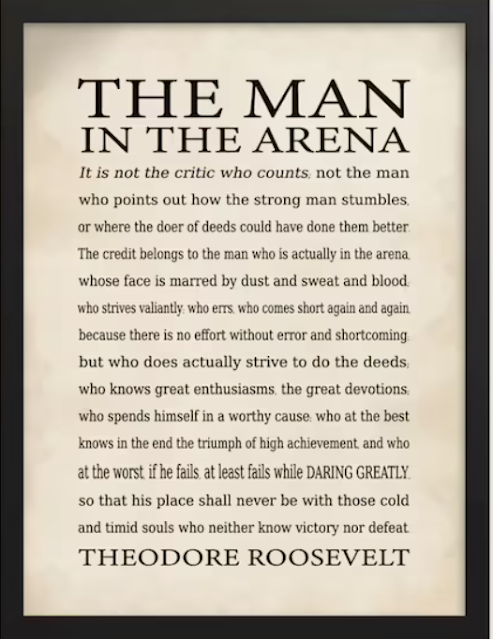Leadership Glossary
While the following terms appear in most if not all of Brené's work, these have been taken mostly from Dare To Lead. Also while they may be fairly intuitive, having a good definition ensures we understand the meaning clearly.
Vulnerability
The emotion we experience during times of uncertainty, risk and emotional exposure.
Being vulnerable is having the courage to show up when you can’t control the outcome.
Empathy
Seeing the world as another sees it.
Connecting to the emotions that underpin and experience.
The Arena
From the quote from T. Roosevelt, 'Man in the Arena',
the Arena refers to the place where a person is striving valiantly, dares greatly, fails,
yet continues in the pursuit of high achievement.
Trust
Choosing to make something you value vulnerable to another person’s actions. – Charles Feltman
Braving
The elements for understanding the building and erosion of trust:
Boundaries, Reliability, Accountability, Vault, Integrity, Nonjudgement, Generosity
Rumble
A discussion, conversation, or meeting defined by
- a commitment to lean into vulnerability,
- to stay curious and generous,
- to stick with the messy middle of problem identification and solving,
- to take a break and circle back when necessary
- to be fearless when owning our parts,
- to listen with the same passion with which we want to be heard.
Wholeheartedness
Living with an unarmoured heart.
A heart free and vulnerable enough to love and be loved.
And free and vulnerable enough to be broken and hurt.
Connection
We are physically, emotionally, cognitively and spiritually hardwired for
connection, love and belonging.
Four Self Conscious Affects - Atlas of the Heart
1. Shame
The fear of disconnection.
A feeling of not good enough, never good enough, and/or not worthy of connection, belonging or love.
Includes 'You're never good enough', and 'Who do you think you are?'
The feeling you get when you think you are bad.
Highly correlated with addiction, violence, aggression, eating disorders and bullying.
Shame erodes the part of us that believes we can do better.
2. Guilt and Remorse
Guilt is the feeling you get when you think you have done something bad.
Compared to shame which is the feeling you get when you think you are bad.
Guilt is the driving force behind apologising or changing a behaviour.
Remorse is a subset of guilt. It is what we feel when we acknowledge that we have harmed another person, we regret it, and we want to make amends. It indicates acceptance of responsibility for the impact of the act.
Guilt is negatively correlated with addiction, violence, aggression, eating disorders and bullying.
Guilt and Empathy work together to powerfully enable us to change.
3. Humiliation
An intensely painful feeling that we have been unjustly degraded, ridiculed or put down and that our identity has been put down or devalued. Humiliation is similar to shame in that we feel fundamentally flawed. Yet people believe they deserve their shame, but they do not believe they deserve their humiliation. They are humiliated because someone else pointed out our flaws and it feels unjust.
Unjustified mistreatment which violates ones dignity, and diminishes ones sense of worth as a human being. - Linda Hartling
All the cruel and brutal things, even genocide, start with the humiliation of one individual. - Kofi Annan.
School shooters describe how they were ridiculed, taunted, teased, harassed or bullied by peers because of their inadequate appearance, social, or athletic behaviour, spurned by someone with whom they were romantically interested, were put down in front of a teacher or school administrator, which are all events that led to profound humiliation. - Susan Harder.
Peer rejection, humiliation, rejection, anger links to both suicidal and homicidal ideation. Individuals become violent when humiliation accompanies bullying. - Geoff Ellison and Susan Harder.
4. Embarrassment
Usually a fleeting feeling of self conscious discomfort in response to a minor incident that was witnessed by others. Looking back they can been seen as funny and something that could have happened to anyone. Characterised by blushing. - Roland Miller. We often respond by using humour, apologising, or ignoring it and moving on. Corresponds with the self-conscious ability to understand what others may be thinking of us.


